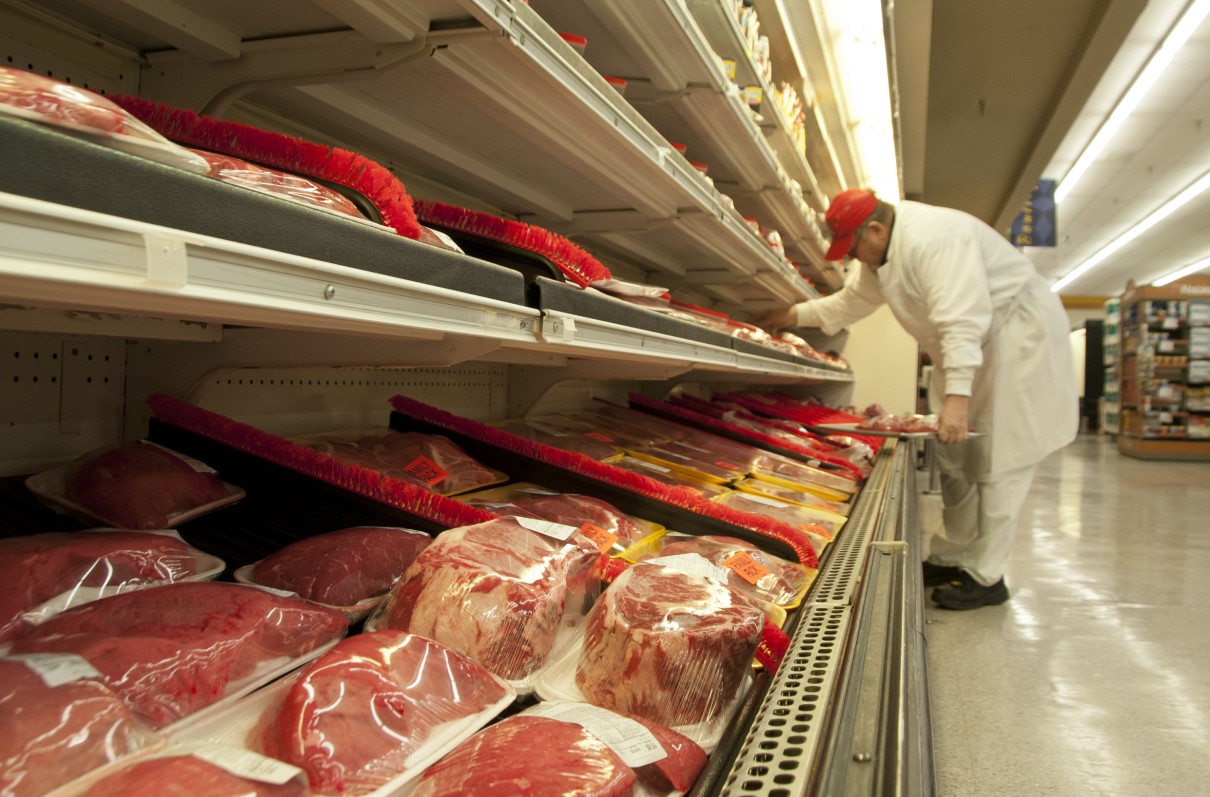Commissaries across the globe are up to the challenges presented by COVID-19, according to the retired Navy flag officer who oversees operations of the global, multibillion-dollar system.
Rear Adm. Robert Bianchi, USN (Ret), DoD special assistant for commissary operations, said each of the 236 commissaries worldwide made adjustments to keep customers and employees safe as they shopped for essential food and supplies during the global crisis.
“We’ve kind of been on the forefront through all of this,” Bianchi said in an interview with MOAA last week. “There’s a lot of folks that have had to shut down, so those of us that have stayed open ... are kind of the pathfinders for many in how we respond, how we adjust to the immediate and then also what the new normal is going to look like.”
In the midst of changing operations, the commissaries are also being studied for consolidation with military exchanges. Bianchi discussed the way forward with operations during COVID-19 and a possible consolidation; more of MOAA's interview with Bianchi will appear in an upcoming issue of Military Officer, which is available to Premium and Life members. His comments have been edited for clarity.
[LATEST NEWS AND GUIDANCE: MOAA.org/Coronavirus]
Q. How are commissaries keeping up with the demands of coronavirus?
A. Where we are today is a very good posture in terms of when our patrons come in our commissaries now, they’re going to see sanitation wipes or methods to disinfect carts, to wipe their hands. We’re only allowing authorized patrons into the facilities … to try to limit the amount of people in the facility at once.
If you walk around the store, you will see clear markings on the floor for social distancing. Of course everybody is wearing face coverings at all of our stores. In many locations, we have disposable gloves available if people choose to put them on for their shopping experience. We have also just increased the cleaning protocols – wiping down surfaces, wiping down the belts on the cash register.
We’ve also worked with the Department of Treasury so we do not require PIN pad signatures now, so people don’t have to touch the PIN pad. We’re making sure patrons show us (identification cards) and scan it remotely so (workers) don’t have to touch the ID. We’ve installed plexiglass shields at all of the registers to provide that extra level of protection. And in some locations, base commanders have designated certain times (for different groups to shop) … so we’ve got staggered hours in some locations.
[DONATE NOW: MOAA's COVID-19 Relief Fund]
Q. How are the commissaries handling product availability?
A. I think we leaned forward very early on. I gave our store directors authority to limit purchase quantities of items to try to ensure we were as equitable as possible so that folks can have access to the products they need. But as you can imagine, there are certain commodities that our customers are having trouble finding. It’s not that they’re not producing and flowing, it’s just that the manufacturing at this point can’t keep up with the demand.
We’ll probably continue to see some of those shortages nationally probably for several more weeks as these manufacturers ramp up production.
[RELATED: All Commissary and Exchange Customers Must Now Wear Face Coverings]
Q. What’s the latest on commissary-exchange consolidation efforts?
A. Last year, the congressional language directed a (Government Accountability Office) review of the business case analysis that had been conducted under the purview of the Chief Management Officer (CMO) over the last couple of years. The CMO submitted their business case to Congress. Congress asked GAO to review it, and GAO provided a draft report to DoD. DoD had an opportunity to provide comment to it, but to my knowledge, a final version of the report has not been delivered. So I think it’s in the deliberative stage.
The congressional language also indicated that DoD was not supposed to move forward on consolidation efforts until Congress had a chance to review the report and issue their view on it.
[RELATED: MOAA Remains Cautiously Optimistic on Commissary-Exchange Merger]
Q. Do you have a message for shoppers who might be concerned about losing their shopping benefits due to consolidation efforts?
A. I don’t know what could come of this proposal, so I can’t sit here and promise you the world tomorrow couldn’t look like the world today. It would be fair to say that those of us who are operating the military resale organizations are committed to ensuring that we continue to provide these very important quality of life benefits to our patrons. Whatever occurs, we will continue to represent our valued patrons: the military members and their families who've earned our support.
MOAA continues its efforts to protect the military shopping benefit, and wants to hear from members about their experiences at the commissary and exchange. Problems? Challenges? Compliments? Concerns? Email us at legis@moaa.org.
MOAA Knows Why You Serve
We understand the needs and concerns of military families – and we’re here to help you meet life’s challenges along the way. Join MOAA now and get the support you need.



